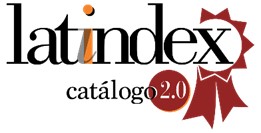Competências matemáticas e a mútua fertilização de teorias
DOI:
https://doi.org/10.48489/quadrante.31744Referências
Brocardo, J., Vale, I., & Menezes, L. (2022). A investigação em resolução de problemas, raciocínio, comunicação e modelação: Uma análise de 30 anos de publicações na revista Quadrante. Quadrante, 31(2), 63–93. https://doi.org/10.48489/quadrante.28065
Canavarro, A. P. (Coord.), Mestre, C., Gomes, D., Santos, E., Santos, L., Brunheira, L., Vicente, M., Gouveia, M. J., Correia, P., Marques, P., & Espadeiro, R. G. (2021). Aprendizagens Essenciais de Matemática no Ensino Básico. ME-DGE. https://www.dge.mec.pt/noticias/aprendizagens-essenciais-de-matematica
Grootenboer, P., & Marshman, M. (2016). Mathematics, affect and learning: Middle school students’ beliefs and attitudes about mathematics education. Springer. https://doi.org/10.1007/978-981-287-679-9
Hannula, M., Pantziara, M., & Di Martino, P. (2018). Affect and mathematical thinking: exploring developments, trends, and future directions. In T. Dreyfus, M. Artigue, D. Potari, S. Prediger, & K. Ruthven (Eds.), Developing research in mathematics education: twenty years of communication, cooperation and collaboration in Europe (pp. 128–141). Routledge.
Jankvist, U. T., & Geraniou, E. (Eds.). (2022). Mathematical Competencies in the Digital Era. Springer. https://doi.org/10.1007/978-3-031-10141-0
Larkin, K., & Jorgensen, R. (2016). ‘I Hate Maths: Why Do We Need to Do Maths?’ Using iPad Video Diaries to Investigate Attitudes and Emotions Towards Mathematics in Year 3 and Year 6 Students. International Journal of Science and Mathematics Education, 14, 925–944. https://doi.org/10.1007/s10763-015-9621-x
Niss, M., & Højgaard, T. (2011). Competencies and mathematical learning – Ideas and inspiration for the development of mathematics teaching and learning in Denmark (Report No. 485). IMFUFA, Roskilde University. https://pure.au.dk/ws/files/41669781/THJ11_M
Niss, M., & Højgaard, T. (2019). Mathematical competencies revisited. Educational Studies in Mathematics, 102(1), 9–28. https://doi.org/10.1007/s10649-019-09903-9
Niss, M., & Jankvist, U. T. (2022). On the mathematical competencies framework and its potentials for connecting with other theoretical perspectives. In U. T. Jankvist, & E. Geraniou (Eds.), Mathematical Competencies in the Digital Era (pp. 15–38). Springer. https://doi.org/10.1007/978-3-031-10141-0_2
OECD (2017). PISA 2015 Assessment and Analytical Framework: science, reading, mathematic, financial literacy and collaborative problem solving. OECD Publishing. https://doi.org/10.1787/9789264281820-en
Panero, M., Castelli, L., Di Martino, P., & Sbaragli, S. (2023). Preservice primary school teachers’ attitudes towards mathematics: a longitudinal study. ZDM Mathematics Education, 55, 447–460. https://doi.org/10.1007/s11858-022-01455-2
Silva, J. C. (Coord.), Rodrigues, A., Domingos, A., Albuquerque, C., Cruchinho, C., Martins, H., Almiro, J., Gabriel, L., Martins, M. E. G., Santos, M. T., Filipe, N., Correia, P., Espadeiro, R. G., & Carreira, S. (2023). Aprendizagens Essenciais de Matemática para o Ensino Secundário. ME-DGE. https://www.dge.mec.pt/noticias/homologacao-das-novas-aprendizagens-essenciais-de-matematica-para-o-ensino-secundario










